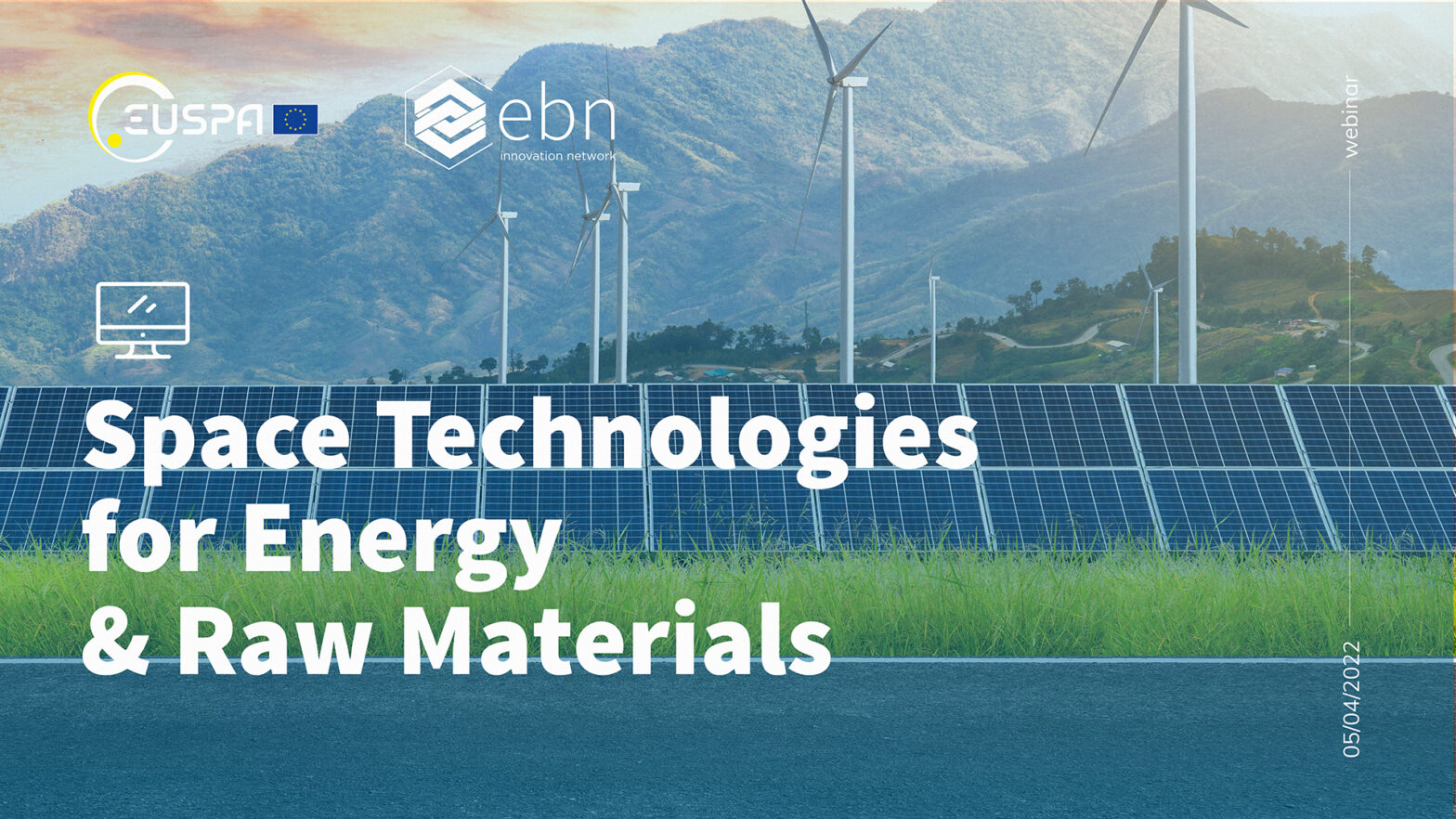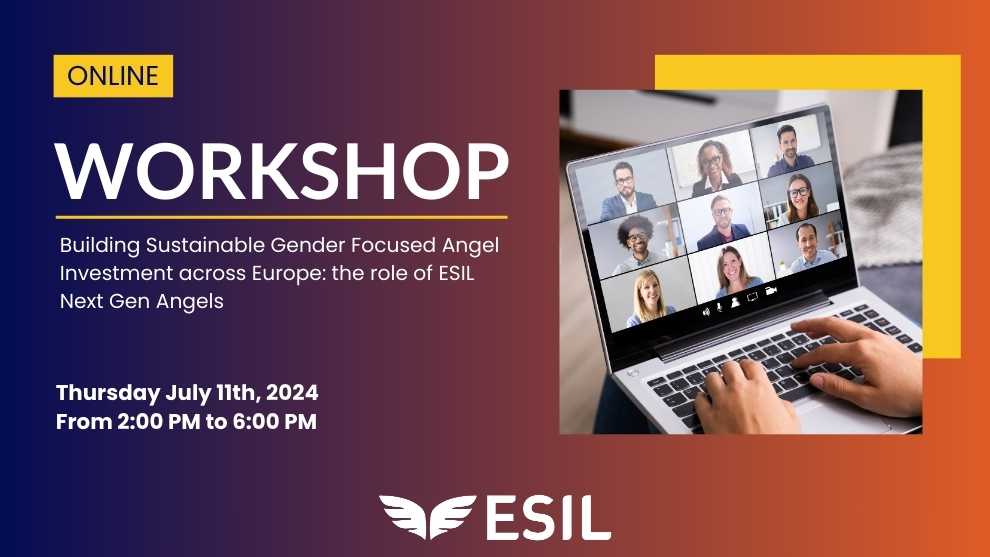Space Technologies for Energy & Raw Materials - EUSPA/EBN webinar

Data from satellites have become an important source of information unlocking new business opportunities and enabling non-existing use cases. EBN together with EUSPA organises a series of webinars showcasing how space data enriching industries are already today. During the webinars, the EUSPA will introduce the EU Space programmes and activities towards entrepreneurs and start-ups, deep dive into how space data can enrich different sectors and examples of existing projects.
The third webinar will be focused on Space Technologies for Energy and Raw materials and the benefits that EU Space Programmes bring to them.
EU climate neutral by 2050
Many global and local initiatives aim for climate neutrality – however, it is Europe that is drafting the most ambitious policies in the sector. Before the rise of the pandemic, the European Green Deal had already confirmed the essential role that renewable energy would have in Europe. The deal aims to make Europe climate neutral by 2050 and establish an EU-wide target of 32% of the power coming from renewable energy as early as 2030 (in 2018 this figure was 18.9%, with large differences between the Member States). Moreover, the EU’s post-COVID recovery plan, worth €750 billion, singles out renewables (particularly wind and solar) as one of the four strategic pillars of the EU’s path towards a resilient, inclusive and green recovery low-carbon future. The achievement of these goals will heavily rely on information and services powered by the EU Space Programme.
The complex field of energy and raw materials includes a long list of stakeholders such as governmental authorities, energy and utility companies, energy traders and supply chain managers and mining companies. For them, satellite technologies can provide invaluable data in the form of various EO and GNSS applications.
The revenues from the sale of both EO data and services to the energy and raw materials sector in 2020 amounted to €305 m. The breakdown in terms of the application shows three major market shares: Site selection, planning and monitoring for Raw Materials; Site selection, planning and monitoring for Renewable Energy; and Environmental impact assessment of energy and mineral resources plants. These held 34%, 24% and 17% market share respectively.
During the webinar we will present:
- The latest market trends of Energy and Raw Materials, existing and the most promising applications
- The added value of Space programmes and how their services can benefit the Energy and Raw Materials segment
- Insights on innovative solutions that use space-based services to address specific challenges in the Energy and Raw materials industries.
Registration
To participate registration is required. You can register your participation here.
About the experts
Dr Eduard Escalona is Space Downstream Market Officer at The European Union Agency for the Space Programme (EUSPA) since 2019 fostering the market uptake of the EU Space programmes and services. He obtained his MSc degree in telecommunications engineering and PhD degree in optical networking from the Universitat Politècnica de Catalunya (UPC) with a strong background in Internet technologies. He is co‐author of over 70 scientific articles among international conferences and journals.
About EUSPA
The European Union Agency for the Space Programme (EUSPA) provides safe and secure European satellite navigation services, promotes the commercialization of Galileo, EGNOS, and Copernicus data and services and coordinates the EU’s forthcoming governmental satellite communications programme GOVSATCOM. EUSPA is responsible for the security accreditation of all the EU Space Programme components. By fostering the development of an innovative and competitive space sector and engaging with the entire EU Space community, EUSPA contributes to the European Green Deal and digital transition, the safety and security of the Union and its citizens, while reinforcing its autonomy and resilience.







